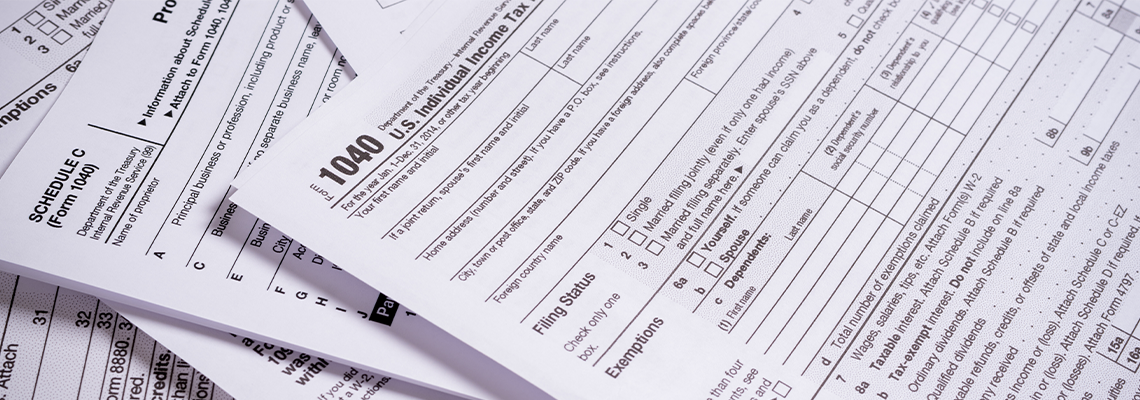
Understanding Your IRS Letter
Probably the scariest piece of mail you can receive is one that has the return address of the Internal Revenue Service (IRS). While some of these letters may be informational only, most likely a letter from the IRS will require some kind of response, perhaps even a payment or a payment arrangement. And you can’t just sit on such letters. You need to respond quickly, whether to state your case or to comply with what’s requested.
If you have received a letter from the IRS that requires action on your part, often a request for payment for one reason or another, in or around Salt Lake City, Utah, contact us at Common Law PC. We are a tax law firm that can help you with any issue or concern you face regarding matters with the Internal Revenue Service. We will protect your rights as we strive to resolve everything in a fair and efficient manner.
Common Law PC also proudly serves clients in and around Park City, Provo, Ogden, and St. George.
Reasons You May Be Notified by the IRS
One of the first things to do when receiving a letter from the IRS is to examine the code that appears at the top of the letter or in the bottom-right corner. If there’s no code, you may be the victim of a phishing attempt to get you to reveal information that someone else can use to take advantage of you. If there is a code, then the letter is likely official. The codes start with either CP or LTR, and they enable you to look up what they mean on the IRS website.
Here is a rundown of the most common codes:
CP504: You owe money to the IRS.
CP521: You have an installment payment due.
CP134R: Your refund is more or less than you thought.
CP12, CP24E: The IRS received more in taxes and will refund the difference.
CP44: There may be a delay in processing your tax return.
CP180, CP181: Your return lacks a needed schedule or form and cannot be processed without it.
CP12: Mistakes were corrected on your return, and an overpayment has been identified.
CP502: This is a reminder subsequent to a CP501 that a balance is due.
CP2000: Your income or payment information doesn’t match your return.
CP71C: A reminder of tax, penalty, and/or interest owed.
CP523: Your installment payments are delinquent, and the agreement is being terminated and the IRS is going to seize your assets.
LTR3172: Notice that the IRS is filing a federal tax lien and explaining your rights to a hearing.
LTR3219b: Notice of deficiency, and the IRS intends to assess a tax deficiency. (basically, you owe money.)
Next Steps After Receiving a Letter from the IRS:
The first step upon receiving a letter from the IRS is not to ignore it. At the same time, you want to make sure that it’s not a scam. Searching for the codes being in the proper place is one step in verifying the letter’s authenticity. Then using that code to see what it means through an IRS website search is the next step. If the code doesn’t exist on the IRS site, then for sure it’s a scam.
Once you’re sure the letter is legitimate, read and follow whatever the contents of the letter say. Some letters like a CP44 could be informational and not require any action on your part, but for the most part, the letter is requesting you to do something, or advising you of something the IRS intends to do – such as place a lien or seize assets – because you have failed to live up to your obligations.
Seek the Guidance of a Tax Attorney
If action is required, whether it be to update and forward a form or schedule or make a payment, then you should follow the instructions. Prepare the schedule or form and submit it, or make the payment. Now if you disagree with the payment request, you should probably obtain advice from an experienced tax attorney and carefully prepare a reply. Whatever you do, you should be mindful of any deadlines set forth in the letter. If you miss a deadline, you could face penalties.
Whatever you do, you should be mindful that the mail system, and the administrative delays on the part of the IRS staff, can slow everything down. You may want to call and talk to an IRS agent before sending your letter. This can not only clarify what you are being asked to do or supply but can also allow you to state any objections or corrections to what was stated in your letter. Again, speaking with a tax attorney first is advised.
As a last step, carefully retain the letter and your response to it, including copies of any checks you sent. The IRS may well indeed have further questions or requests, and you need a complete record of what has transpired.
Understanding Your Notice and Taking the Proper Steps
If you have received a notice from the IRS in or around Salt Lake City, contact us at Common Law PC. We will review the letter and what it is requesting – or demanding – and help you assert your rights and/or correct any errors or omissions on your part that may have prompted the IRS notice. Reach out immediately if you’ve received a letter from the IRS.

